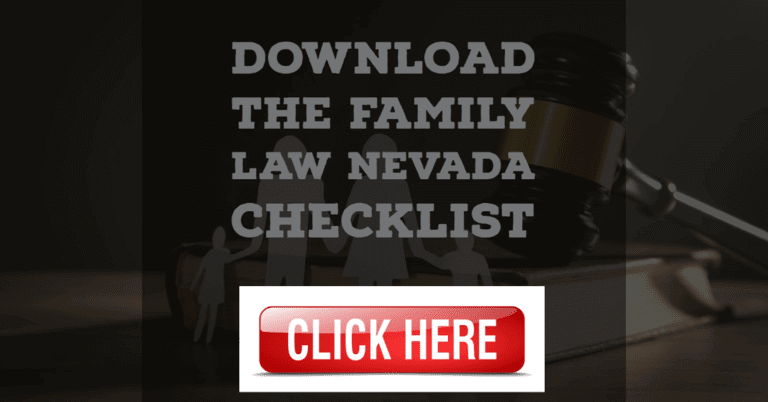Estate planning can be a confusing process, but it’s vital.
Having the proper documents in place now will make a massive difference for your family’s future.
There are six essential documents you should look into getting:
- a Will and Testament,
- Living Trust,
- Advance Healthcare Directive,
- Financial Power of Attorney,
- Beneficiary Designations,
- and Digital Estate Planning.
Reviewing your documents and updating them regularly can save you a lot of stress later on down the road.

Your Peace of Mind Matters
Planning your estate right can save you and your family a lot of hassle.
Completing a comprehensive checklist of essential documents will give you peace of mind. Your hard-earned assets will get distributed according to your wishes. That way your loved ones will get taken care of as you would hope.
Investing the time now can provide invaluable protection later.
Will and Testament
You have a lot of essential things to consider when it comes to estate planning.
A will is vital as it determines the following:
- how your assets are distributed,
- who becomes the guardians of any minors,
- and who is appointed executor.
It’s essential to regularly review and update your will to ensure it reflects any changes in your life.
The Purpose of a Will
Creating a will is vital to ensure your wishes get followed after you’re gone. It’s like writing down instructions for your family.
A will helps specify the following:
- who gets what from your estate,
- appoints guardianship if you have kids who are minors,
- and chooses someone responsible (called the executor) to carry out your wishes.
It’s an essential part of estate planning.
Why You Should Update Your Will
It’s crucial to make sure your estate plan is up-to-date.
Remember to update your will if something has changed, like getting married or having a baby.
Don’t forget to update beneficiary designations too! Last but not least, don’t forget about digital estate planning.
You’ll want to ensure all your online accounts, digital assets, and social media profiles get handled according to your wishes.
Estate planning can get complicated, but going over this now can save your loved ones a lot of stress in the future.

Living Trust
You may have heard about living trusts, but do you know what they are and how they can help you?
A living trust is an excellent way to:
- avoid probate,
- maintain privacy,
- and ensure that your assets are distributed quickly and efficiently.
Setting up a living trust is vital to choose a trusted person to manage the trust if needed in case of incapacity.
The Benefits of a Living Trust
Creating a living trust can save you a lot of time and money.
It keeps your assets secure and out of probate, which means it’s private and not made public record. Plus, your assets are more easily distributed without going through the courts.
So consider making a living trust for ultimate estate planning success.
The Process of Creating and Funding a Living Trust
Creating and funding a living trust is essential in estate planning.
You’ll need to take the following steps:
- Write out your intentions as a living trust document.
- Assign a trustee and successor trustee.
- Title assets into the trustees name.
- Fund the trust with cash or other investments.
- Then sign the trust documents.
Your trust should get kept up-to-date as your situation changes over time.
With these steps complete, you can feel confident that your wishes will be upheld.

Appointing a Trustee
Make sure you appoint someone trustworthy to manage your trust if you cannot. This will give you peace of mind that your assets are in good hands and cared for even if you can’t be there.
Advance Healthcare Directive
When it comes to your health, having a plan in place is essential.
An Advance Healthcare Directive lets others make decisions about your health if you can’t do it. It’s like permitting someone else to choose the best treatment for you and how far it should go.
The directive, or document, appoints someone you trust, called a healthcare proxy, to make these choices for you.
Make sure you know all the details before creating your directive!
Advance Healthcare Directive Defined
Having an Advance Healthcare Directive is vital if you cannot make medical decisions.
This document will let you appoint a trusted person, called a healthcare proxy, to make decisions for you. It also specifies what end-of-life care you wish to receive.
It’s also crucial to update your beneficiaries for critical assets like:
- insurance policies,
- retirement accounts,
- setting up a Digital Estate Plan to manage your online accounts, digital assets, and social media profiles if needed.
Preparing these now will help ensure that the people you love get cared for later.

The Components of an Advance Healthcare Directive
An Advance Healthcare Directive lets you set medical treatments and end-of-life care instructions. Here’s what you need to do:
- Appoint a healthcare proxy – this person will make decisions about your health if you cannot.
- Provide instructions for medical treatments, medications, or procedures should you ever be incapacitated
- Set out your desired end-of-life care, such as being kept on life support or having a Do Not Resuscitate order.
Planning ahead makes it easier to ensure your family follows what you want after you’re gone. You can make sure your wishes get respected.
Financial Power of Attorney
When managing your finances, you don’t always have the time to take care of all your needs.
That’s why appointing someone you trust to make decisions about your assets is a good idea.
This process is called creating a financial power of attorney.
Here, we’ll explain how you can choose the right person to be your agent. We’ll also discuss the importance of clearly defining their authority and limitations.
The Role of a Financial Power of Attorney
Creating an estate plan is essential to ensuring that your wishes get cared for after you’re gone.
It’s essential to appoint a trustworthy individual as your financial power of attorney. You also need to define their powers and limitations clearly.
With this checklist of critical estate planning documents, you can trust that your final wishes will get carried out.

Beneficiary Designations
Did you know that beneficiary designations should get reviewed often too?
When you pick who should get your money after you die, ensuring the right people get it is vital. This is called “naming beneficiaries.” It can change who gets what and how much, so choosing carefully is vital.
That’s why you must ensure that your beneficiary designations align with your goals.
Don’t worry — we’ll help you understand what needs to get done so you can make sure everything is taken care of properly.
How to Properly Designate Beneficiaries
Choosing the best beneficiary for your estate can be difficult.
When you’re gone, it’s essential to think about who you want to entrust with your money and assets.
Please make sure they are someone you trust and have a good understanding of your wishes.
Consider their:
- age,
- responsibility level,
- and any other factors that may come into play.
To ensure everything is in order, review your documents before finalizing them. Then update your beneficiary designations whenever necessary.
Digital Estate Planning
As part of your estate plan, managing these is vital:
- digital accounts,
- assets,
- and social media profiles.
Doing so helps ensure your wishes get fulfilled after you die.
By creating a digital estate plan, you can:
- protect your digital asset,
- and direct them where they should go in the event of your death.
Please review your passwords, usernames, and digital property, and make sure you have chosen someone who can help manage them in the future.

Breaking It All Down For You
In conclusion, estate planning is a daunting task.
Yet, taking the steps to create the essential documents we covered in this post will give you peace of mind.
Further Reading
Here are some related blog posts you may find helpful:
- “Tips On Estate Planning: How Not to Gamble Your Future Away“
- “Estate Planning Services: Securing Your Future in Las Vegas“
- “5 Simple Things Every New Parent Needs To Know About Making a Will“
- “Estate Planning Probate: Las Vegas Attorney to Navigate the Process“
- “What is the Estate Planning Process in Nevada? A Comprehensive Guide“
- “Damar Hamlin – The Need for Estate Planning: Insights and Advice“
- “Estate Planning for Unmarried Couples Is Necessary In Nevada: What You Should Know“
- “Estate Planning Mistakes: Help for Nevadans to Avoid Costly Errors“
Feel free to explore these posts to gain more knowledge and insights into estate planning in Las Vegas.

Offsite Resources You May Find Helpful
Here are five offsite resources that you may find useful related to estate planning, including the topics of Wills and Testaments, Living Trusts, Advance Healthcare Directives, Financial Power of Attorney, Beneficiary Designations, and Digital Estate Planning:
-
American Bar Association Guide on Wills and Estate Planning: This comprehensive guide provides a detailed overview of the estate planning process and the key documents involved, including Wills and Testaments.
-
National Institute of Aging’s Guide on Advance Healthcare Directives: This guide provides practical information on Advance Healthcare Directives and why they are critical in the estate planning process.
-
Investopedia’s Guide on Financial Power of Attorney: This resource provides a detailed explanation of the Financial Power of Attorney and its role in managing the estate of an individual.
-
Fidelity’s Guide on Beneficiary Designations: This guide provides an overview of the role of beneficiary designations in estate planning and how to designate them properly.
-
Everplans’ Guide on Digital Estate Planning: This guide provides an overview of digital estate planning, highlighting the importance of managing digital assets and online accounts as part of an estate plan.

Frequently Asked Questions
What essential documents should I consider for estate planning?
When planning your estate, there are several crucial documents to consider to ensure your wishes are fulfilled. These include a Will and Testament, Living Trust, Advance Healthcare Directive, Financial Power of Attorney, Beneficiary Designations, and Digital Estate Planning. Each document serves a specific purpose in safeguarding your assets and ensuring your loved ones are cared for according to your wishes.
Why is it important to create a Will and Testament?
Creating a Will and Testament allows you to dictate how your assets will be distributed, appoint guardians for minors, and designate an executor to carry out your wishes. Regularly reviewing and updating your will ensures it reflects any changes in your life circumstances, ensuring your estate plan remains current and effective.
What role does a Living Trust play in estate planning?
A Living Trust is a valuable tool for avoiding probate, maintaining privacy, and facilitating efficient asset distribution. By appointing a trusted individual to manage the trust, you can ensure your assets are protected and swiftly distributed according to your wishes in case of incapacity or death.
Why should I consider an Advance Healthcare Directive?
An Advance Healthcare Directive allows you to appoint a healthcare proxy to make medical decisions on your behalf if you become incapacitated. This document ensures your healthcare preferences are followed, including end-of-life care instructions, and provides peace of mind that your wishes will be respected.
What is the significance of a Financial Power of Attorney?
A Financial Power of Attorney enables you to appoint a trusted individual to make financial decisions on your behalf. Clearly defining their authority and limitations ensures your assets are managed according to your wishes, even if you are unable to do so yourself.
Why are beneficiary designations important in estate planning?
Beneficiary designations determine who receives your assets upon your death. Regularly reviewing and updating these designations ensures they align with your current goals and circumstances, ensuring your assets are distributed as intended.
What is involved in Digital Estate Planning?
Digital Estate Planning involves managing your digital accounts, assets, and social media profiles to ensure they are handled according to your wishes after your death. This process includes organizing passwords, usernames, and digital property, as well as selecting a trusted individual to manage them in the future.
Why is estate planning essential?
Estate planning is crucial for ensuring your assets are protected and distributed according to your wishes. By creating and maintaining essential documents such as a Will and Testament, Living Trust, Advance Healthcare Directive, Financial Power of Attorney, Beneficiary Designations, and Digital Estate Plan, you can achieve peace of mind knowing your loved ones will be cared for and your legacy preserved.

What's Next
Are you living in Las Vegas and looking for an estate planning attorney?
Look no further!
The Rosenblum Allen Law Firm is perfect for all your legal needs.
With years of experience handling cases throughout Nevada, we are confident we can help you get results that make sense.
Plus, our dedicated staff will be with you every step of the way, so worry about a thing – relax knowing that experts at one of Las Vegas’s top law firms have your back regarding estate planning matters.
So what are you waiting for?
Call us today at (702) 433-2889, and let us show how simple getting professional help can be!




